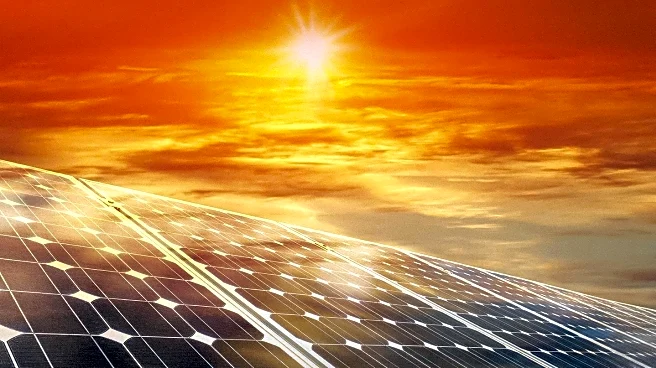What's Happening?
Jewish nonprofits are being urged to invest in solar energy as a means to reduce operational costs and enhance sustainability. Despite the expiration of federal solar incentives at the end of the year,
solar power remains the cheapest form of energy available. The upfront cost of solar panel installation can be offset over time through reduced energy bills, providing financial resilience for synagogues, Jewish community centers, and other nonprofits. The Jewish Solar Challenge has demonstrated the benefits of solar energy, helping organizations save on electricity costs and reduce carbon emissions.
Why It's Important?
Investing in solar energy is crucial for Jewish nonprofits facing financial constraints, as it offers a sustainable solution to cut overhead costs. The transition to solar power aligns with Jewish teachings on environmental stewardship and provides long-term financial stability. As philanthropy dollars fluctuate, solar panels offer a reliable way to stabilize budgets and protect programs. The initiative also serves as a catalyst for broader environmental efforts within communities, encouraging individuals to reduce their carbon footprint.
What's Next?
Jewish nonprofits are encouraged to act quickly to take advantage of current incentives before they expire. Even without federal support, solar energy remains a viable option due to decreasing installation costs and increased energy efficiency. Philanthropic organizations can play a role in accelerating the transition by funding solar projects and promoting sustainability among grantees.










